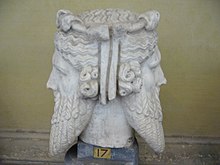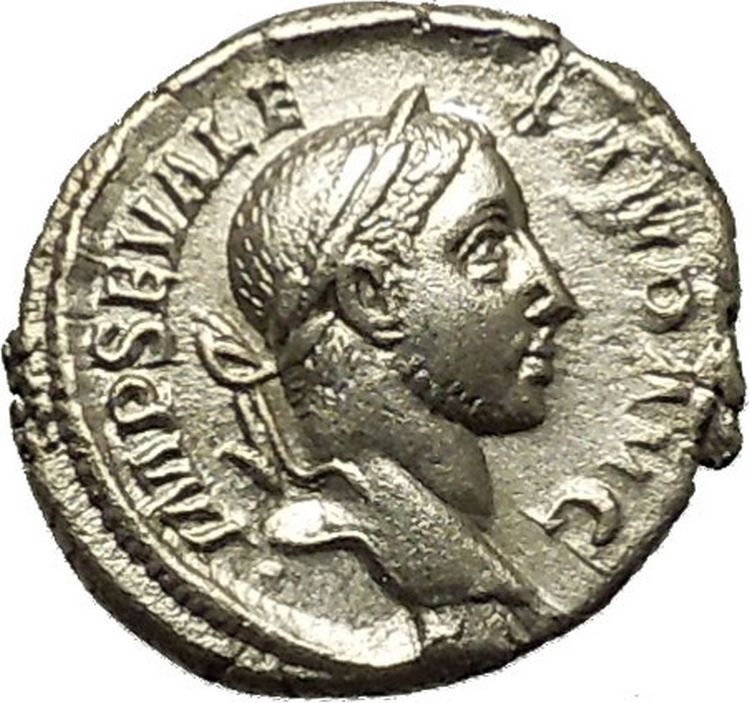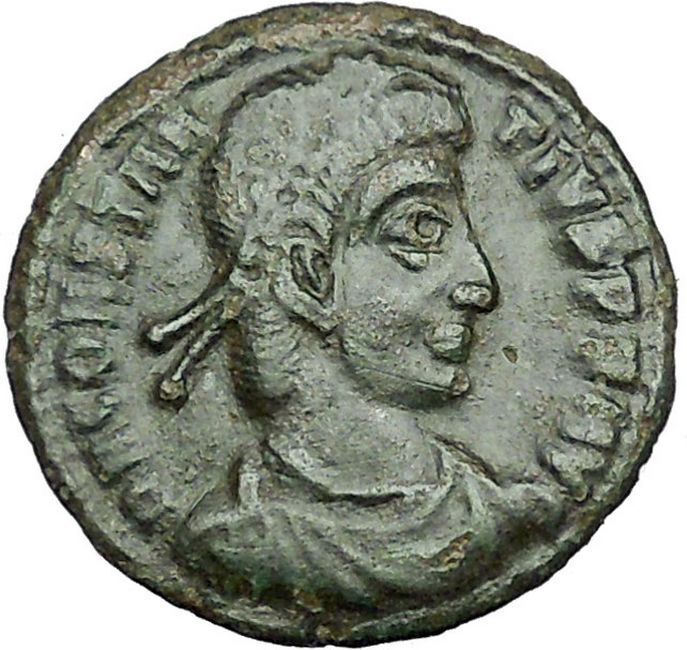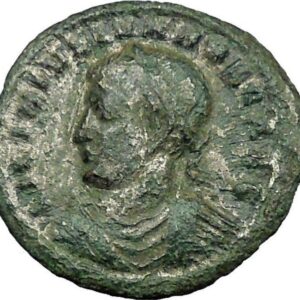|
Geta – Roman Emperor: 209-211 A.D.
Silver Denarius 20mm (2.97 grams) Rome mint: 211 A.D.
Reference: RIC 79; C. 197
Certification: NGC Ancients Ch AU 4375823-136
P SEPT GETA PIVS AVG BRIT, Laureate head right.
TR P III COS II P P, Janus standing left with scepter and thunderbolt.
You are bidding on the exact item pictured, provided with a Certificate of Authenticity and Lifetime Guarantee of Authenticity.
 In ancient Roman religion and myth, Janus is the god of beginnings, gates, transitions, time, doorways, passages, and endings. He is usually depicted as having two faces, since he looks to the future and to the past. It is conventionally thought that the month of January is named for Janus (Ianuarius), but according to ancient Roman farmers’ almanacs Juno was the tutelary deity of the month. In ancient Roman religion and myth, Janus is the god of beginnings, gates, transitions, time, doorways, passages, and endings. He is usually depicted as having two faces, since he looks to the future and to the past. It is conventionally thought that the month of January is named for Janus (Ianuarius), but according to ancient Roman farmers’ almanacs Juno was the tutelary deity of the month.
Janus presided over the beginning and ending of conflict, and hence war and peace. The doors of his temple were open in time of war, and closed to mark the peace. As a god of transitions, he had functions pertaining to birth and to journeys and exchange, and in his association with Portunus, a similar harbor and gateway god, he was concerned with travelling, trading and shipping.
Janus had no flamen or specialised priest (sacerdos) assigned to him, but the King of the Sacred Rites (rex sacrorum) himself carried out his ceremonies. Janus had a ubiquitous presence in religious ceremonies throughout the year, and was ritually invoked at the beginning of each one, regardless of the main deity honored on any particular occasion.
The ancient Greeks had no equivalent to Janus, whom the Romans claimed as distinctively their own.
 Geta – Roman Emperor: 209-211 A.D. Geta – Roman Emperor: 209-211 A.D.
| Caesar: 198-209 A.D. (under Septimius Severus and Caracalla) | Augustus: 209-211 A.D. (209-211 with Septimius Severus and Caracalla) (211 A.D. with Caracalla) |
| Son of Septimius Severus and Julia Domna | Brother of Caracalla | Brother-in-law of Plautilla | Nephew of Julia Maesa | Cousin of Julia Soaemias and Julia Mamaea |
Publius Septimius Geta (March 7, 189–December 26, 211), was a Roman Emperor co-ruling with his father Septimius Severus and his older brother Caracalla from 209 to his death.
Geta was the younger son of Septimius Severus by his second wife Julia Domna. Geta was born in Rome, at a time when his father was only a provincial governor at the service of emperor Commodus.
Geta was always in a place secondary to his older brother Lucius, the heir known as Caracalla. Perhaps due to this, the relations between the two were difficult from their early years. Conflicts were constant and often required the mediation of their mother. To appease his youngest son, Septimius Severus gave Geta the title of Augustus in 209. During the campaign against the Britons of the early 3rd century, the imperial propaganda publicized a happy family that shared the responsibilities of rule. Caracalla was his father’s second in command, Julia Domna the trusted counsellor and Geta had administrative and bureaucratic duties. Truth was that the rivalry and antipathy between the brothers was far from being improved.
Joint Emperor
When Septimius Severus died in Eboracum in the beginning of 211, Caracalla and Geta were proclaimed joint emperors and returned to Rome.
Regardless, the shared throne was not a success: the brothers argued about every decision, from law to political appointments. Later sources speculate about the desire of the two of splitting the empire in two halves. By the end of the year, the situation was unbearable. Caracalla tried to murder Geta during the festival of Saturnalia without success. Later in December he arranged a meeting with his brother in his mother’s apartments, and had him murdered in her arms by centurions.
Following Geta’s assassination, Caracalla damned his memoryy and ordered his name to be removed from all inscriptions. The now sole emperor also took the opportunity to get rid of his political enemies, on the grounds of conspiracy with the deceased. Cassius Dio stated that around 20,000 persons of both sexes were killed and/or proscribed during this time.
|








 In ancient Roman religion and myth, Janus is the god of beginnings, gates, transitions, time, doorways, passages, and endings. He is usually depicted as having two faces, since he looks to the future and to the past. It is conventionally thought that the month of January is named for Janus (Ianuarius), but according to ancient Roman farmers’ almanacs Juno was the tutelary deity of the month.
In ancient Roman religion and myth, Janus is the god of beginnings, gates, transitions, time, doorways, passages, and endings. He is usually depicted as having two faces, since he looks to the future and to the past. It is conventionally thought that the month of January is named for Janus (Ianuarius), but according to ancient Roman farmers’ almanacs Juno was the tutelary deity of the month. Geta – Roman Emperor: 209-211 A.D.
Geta – Roman Emperor: 209-211 A.D.




